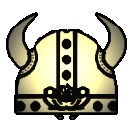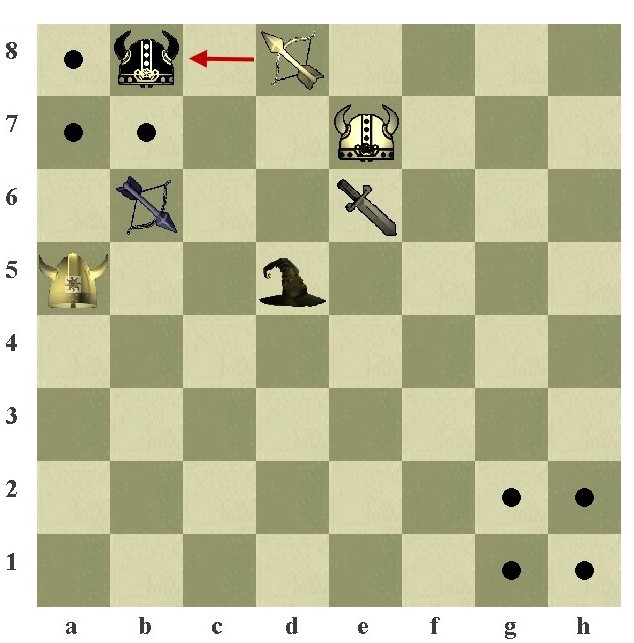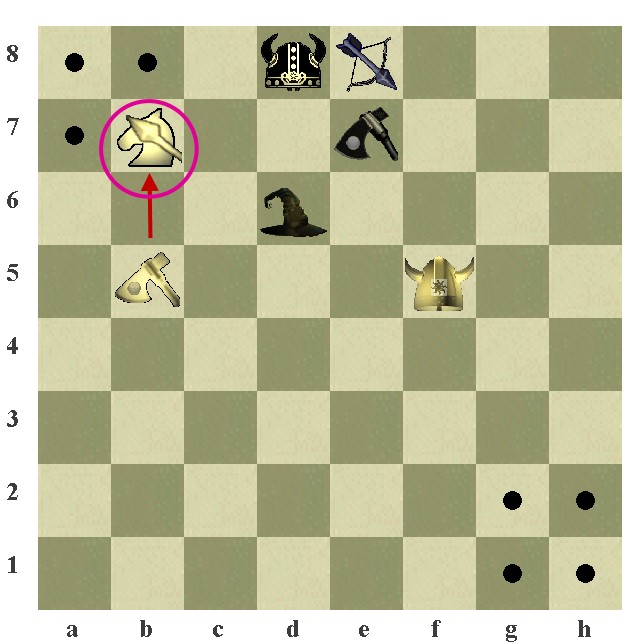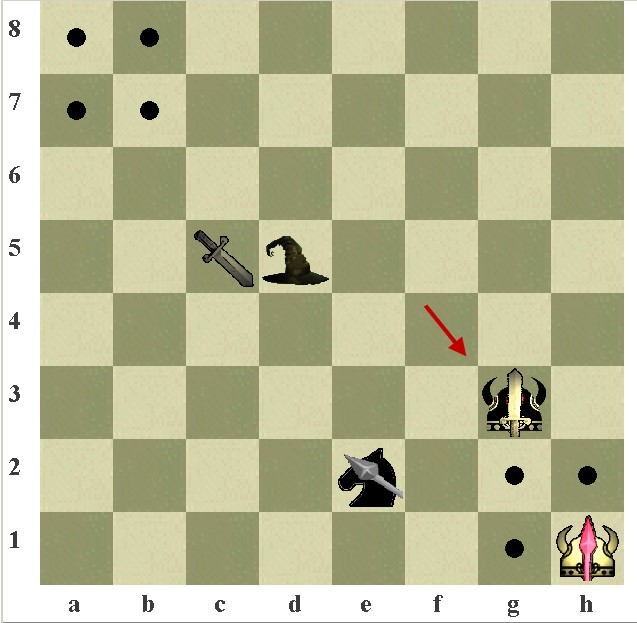 is demoted to=>
is demoted to=>  which can be demoted to==>
which can be demoted to==> 
Example winning scenarios:
#1 White moves his archer from D8 to C8, thus attacking
the black khan. After a long, drawn out game, black has lost in material,
and is cornered at his home base. Black has nowhere to go, without being
captured by enemy pieces, so must admit defeat:

#2 In a similar scenario, white has managed to get an
assassin to the enemy home base (one of squares a7,a8,b7,b8 for white).
The assassin (B5->B7) has been promoted to a warrior, the next in rank.
The black khan is under direct threat by the warrior and cannot move.
Black loses:

Avoid forced draw scenarios:
#3 White's khan which has been demoted by the black magician
to a KHAN ARCHER,  is now not able to move anywhere. Black moved F4 to G3. It is white's
move, so the game is declared a stalemate. Black could have avoided this
scenario by threatening the khan archer with his warrior, thus winning
the game.
is now not able to move anywhere. Black moved F4 to G3. It is white's
move, so the game is declared a stalemate. Black could have avoided this
scenario by threatening the khan archer with his warrior, thus winning
the game.

There is another draw scenario notable to avoid: 100 moves passing with
no captures. A draw is automatically declared.